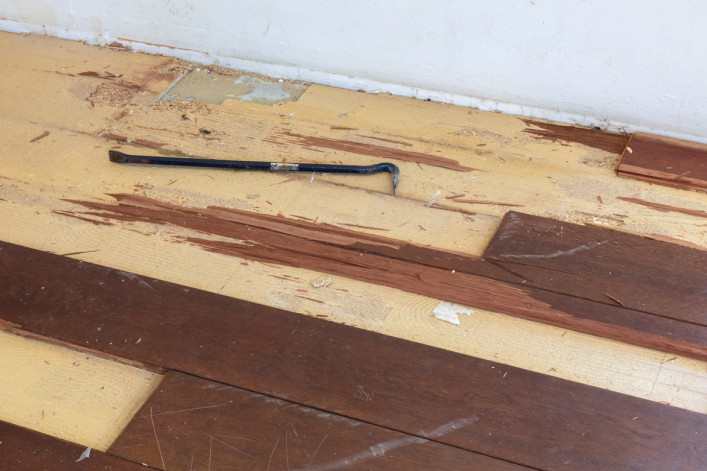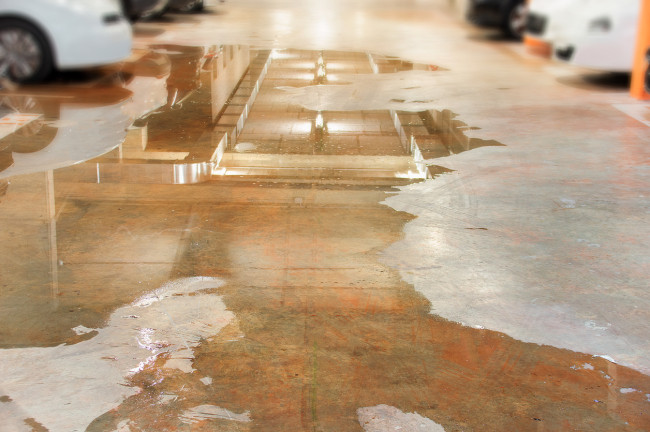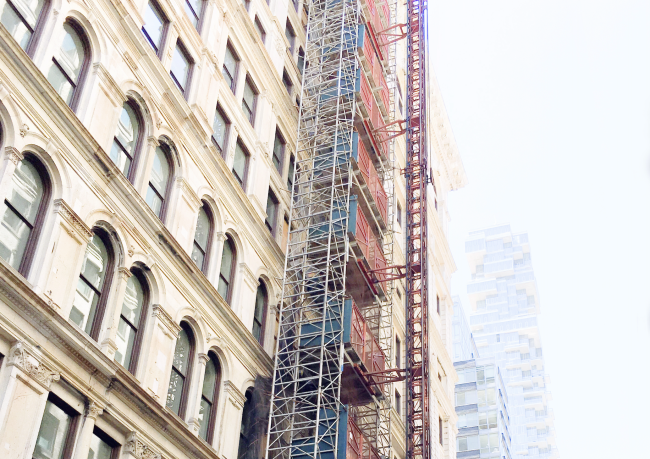Can I get a maintenance abatement if water damage left my co-op temporarily uninhabitable?
- Under the warranty of habitability you are entitled to an abatement if the unit is uninhabitable
- Co-op boards are often reluctant to give abatements because it shrinks the operating budget
- You may decide the abatement you are entitled to is not worth the battle with the board

In this case, the warranty of habitability would apply because the leak is coming from the façade, which is the co-op's responsibility.
iStock
A façade leak damaged the floor in my co-op. Can I get a maintenance abatement since my apartment will be temporarily uninhabitable while repair work is being done?
In this situation, the warranty of habitability—the rules a landlord must follow to ensure an apartment is safe and livable—entitle you to an abatement, our experts say. However, as a co-op shareholder who has signed a proprietary lease you are both an owner and a tenant, and this often complicates a request for an abatement.
Tenant attorney Sam Himmelstein, at Himmelstein McConnell Gribben & Joseph (and a Brick Underground sponsor) has seen boards complain that by withholding maintenance, a shareholder is hurting the economic viability of the building.
So while you may be entitled to a maintenance abatement, if the board indicates they are willing to fight you on this issue, you will have to decide if it is worth the battle. “What they will often do if a shareholder withholds maintenance is sue them in a non-payment case and they won’t settle unless the shareholder pays their legal fees,” he says.
Evaluating a maintenance abatement
If you are completely unable to access your apartment you should get a 100 percent abatement for that period of time, Himmelstein says. So if the repair work require you to move out for two weeks, you should get half a month’s abatement. “That’s the measure of damages under the warranty of habitability—if you are completely deprived of the use of the apartment then you should not pay any maintenance,” he says.
In this case, the warranty of habitability would apply because the leak is coming from the façade, which is the co-op's responsibility.
However, a contractor would typically install a new floor in a short period of a day or two. “The shareholder might be entitled to an additional abatement for the time the floor was damaged, however it certainly would not be 100 percent as the apartment would be partially usable,” says Dean Roberts, an attorney at Norris McLaughlin.
The power lies with the co-op board
Co-ops operate under the business judgment rule and this means courts will generally not interfere with a business decision made by a board unless it is discriminatory or taken in bad faith. This gives co-ops a fair amount of discretion in making business decisions.
“In co-ops, it is always important to remember that an abatement just means the other shareholders have to pick up the difference, including the shareholder who gets the abatement,” Roberts says. You may decide the abatement you are entitled to is less important than your standing with the board.
Himmelstein has seen examples of boards filing non-payment cases against shareholders if maintenance is withheld. In some cases the board won’t settle unless the shareholder agrees to pay their legal fees. If this continues to go unresolved, the situation can worsen for the shareholder at the point of sale.
“The co-op will say you owe us $4,000 in legal fees and unpaid maintenance so we are not going to approve the sale unless you pay all that,” Himmelstein says.
So even though you have a case for an abatement, you will have to decide whether it is worth the fight. This shouldn’t prevent you from asking for an abatement but, in many cases, Himmelstein warns: “At the end of the day, even if you win you will lose because when you try to sell the apartment the board will say, unless you pay all this money we won’t approve the sale.”
You Might Also Like




























